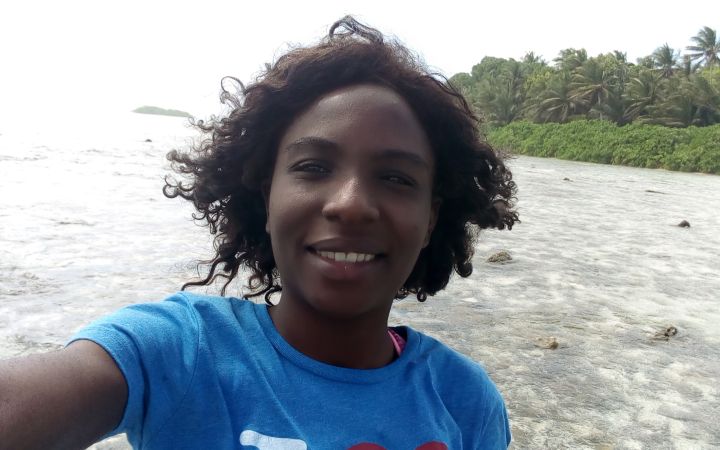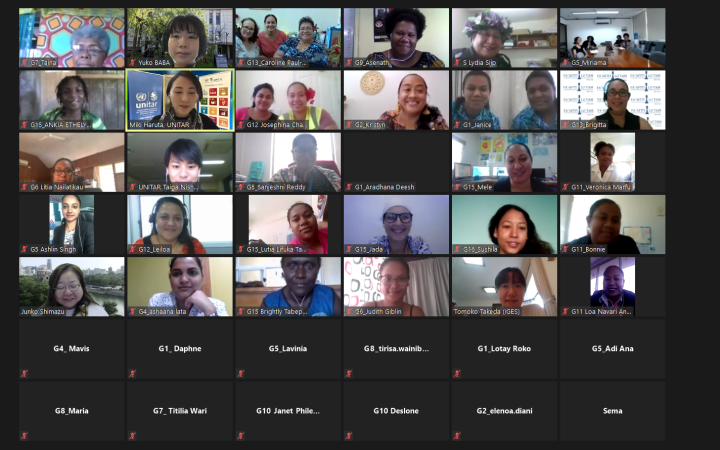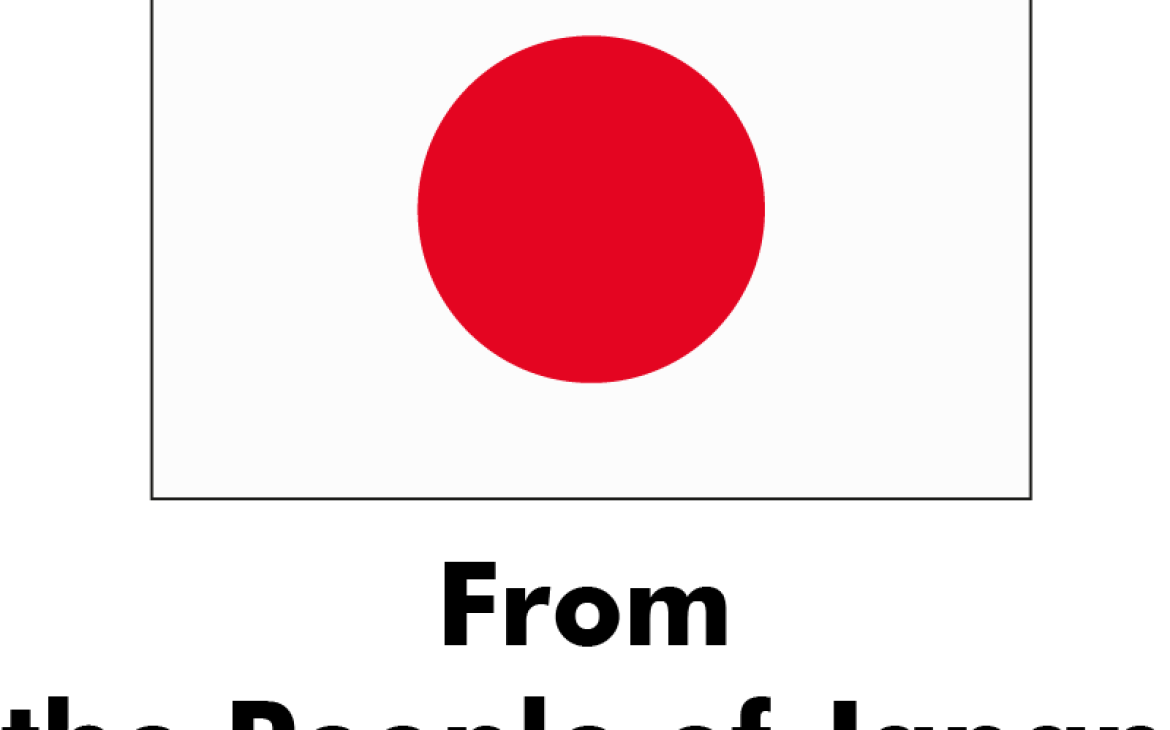1 September, 2021, Hiroshima, Japan - “We cannot stop disasters from striking but with the ability to reduce their risk, we can significantly minimize both human and infrastructure loss and build better resilience for future biological hazards,” says Ethelyn Ankiambom Chia, or “Ankia,” one of the 68 female participants that successfully completed the 2020 Women’s Leadership in Tsunami-based Disaster Risk Reduction Programme.
Ankia is a trained health professional, gender advocate, and schoolteacher in Chuuk State, Micronesia. She applied for the UNITAR programme not only because she lives in one of the Pacific islands but because she believes that women have an important role to play in disaster risk reduction.
“One thing for sure is that we cannot stop disasters from striking, but with the ability to reduce their risk, we can significantly minimize both human and infrastructure loss and build better resilience for future biological hazards too, she says.”
The UNITAR Division for Prosperity programme builds women participants’ leadership skills in the context of disaster risk reduction. It deepens their understanding of the Sendai Framework for Action, Sustainable Development Goals, Japan’s experience with natural disasters, and the importance of gender-inclusive leadership and multi-stakeholder coalitions in disaster risk reduction.
If Ankia had to choose one favourite takeaway from the programme, she would say that the “Build Back Better” aspect in the Sendai Framework was particularly interesting. “If we learn from every hazard and build back better in preparation for recurrence and/or even worse disasters, the world will eventually attain a decent disaster preparedness level,” she says.
Ankia also enjoyed learning how to take gender-specific needs into account when developing a disaster risk reduction plan.
Due to the COVID-19 pandemic, the 2020 cycle was delivered fully online – a departure from past cycles, which were in-person and based on study tours. Ankia appreciated having the possibility to (e)-meet the other participants since it allowed her to learn from other participants’ real-life experiences in different Pacific islands.
Through the course, learning communities were established by dividing participants in small groups so that they could interact. Participants could also join open discussion forums at the end of each section, where they actively exchanged their views and comments. Ankia was inspired by her programme mates who were dedicated and enthusiastic about doing something to save communities.
One of the programme’s major objectives is to encourage participants to apply what they learned in the lessons to their work, and for Ankia, that is certainly the case. She found the knowledge she gained so useful that she has already started sharing it with her students and colleagues.
“Women [need to] know that in the event of a disaster, we have to try to save ourselves and not always feel responsible for the entire family. We are, however, responsible for preparing the family and making sure each member is aware of the evacuation procedure and available evacuation site.”
She recognizes that continuous discussions will be necessary but believes the information will eventually sink in and be useful to her students in case they ever find themselves in a disaster.
Ankia plans to integrate what she has learned in her future work, which will likely be focused on biological hazards, particularly considering the example of COVID-19.
“I am positive about the future of disaster risk reduction in the small island countries of the Pacific. And I will do my best to put this into practice, for the good of humankind,” says Ankia.
DRR Project Completion Report
For more details, click the link below for the project completion report.
About UNITAR
The United Nations Institute for Training and Research (UNITAR) provides innovative learning solutions to individuals, organizations, and institutions to enhance global decision-making and support country-level action for shaping a better future. Located in Hiroshima, UNITAR's Division for Prosperity offers world-class learning and knowledge-sharing services to present and future change-makers from developing countries, particularly youth and women, that are designed to shape an inclusive, sustainable and prosperous world. Our programmes are dedicated to addressing growing inequalities, working in solidarity with diverse partners at the local, regional and global levels to the global development agenda (SDGs) through impactful innovative training and learning opportunities available to people around the world.




